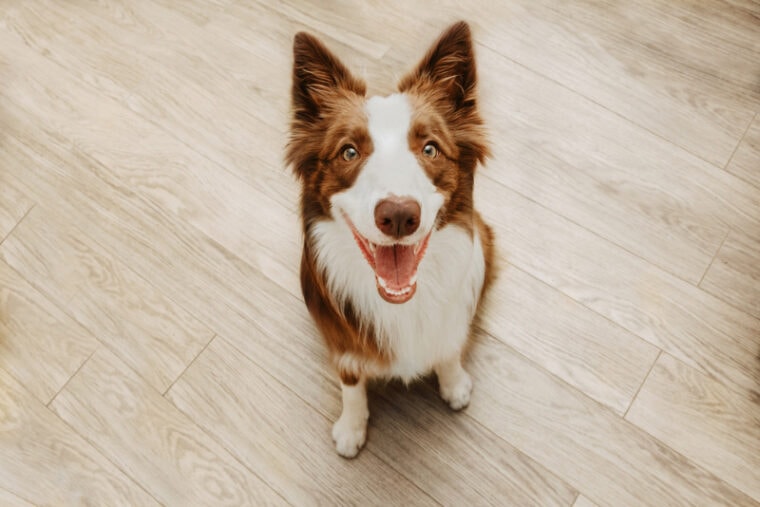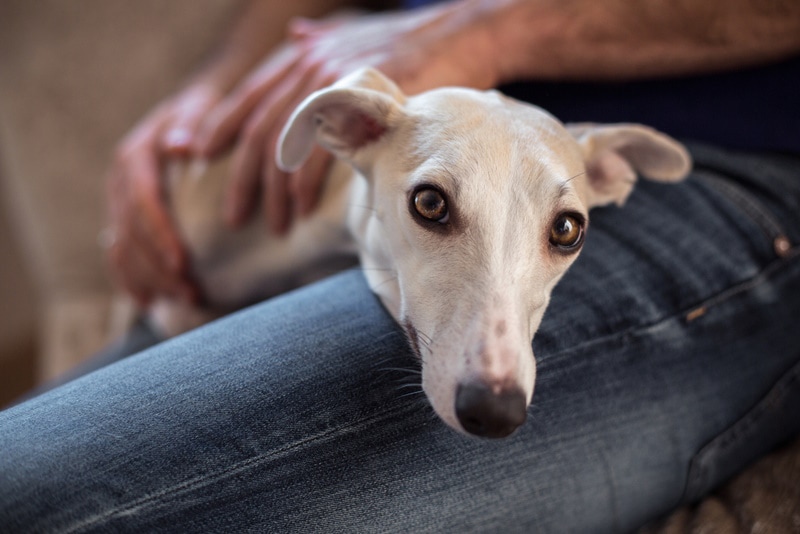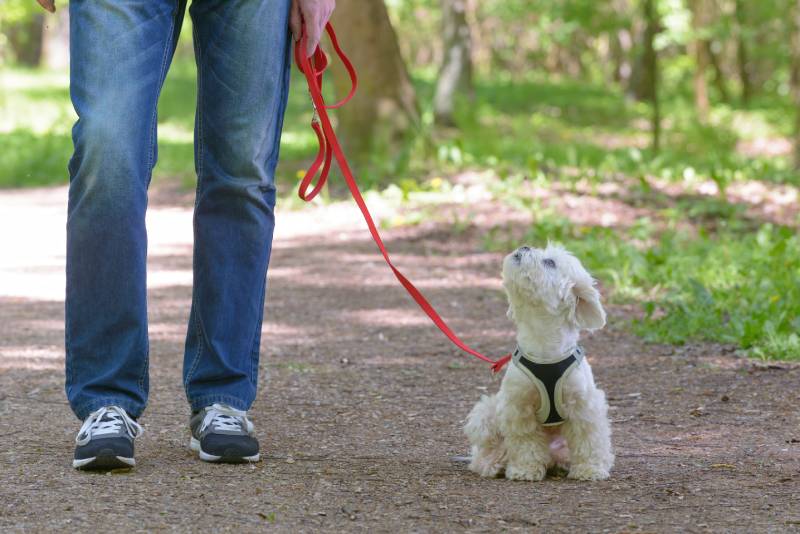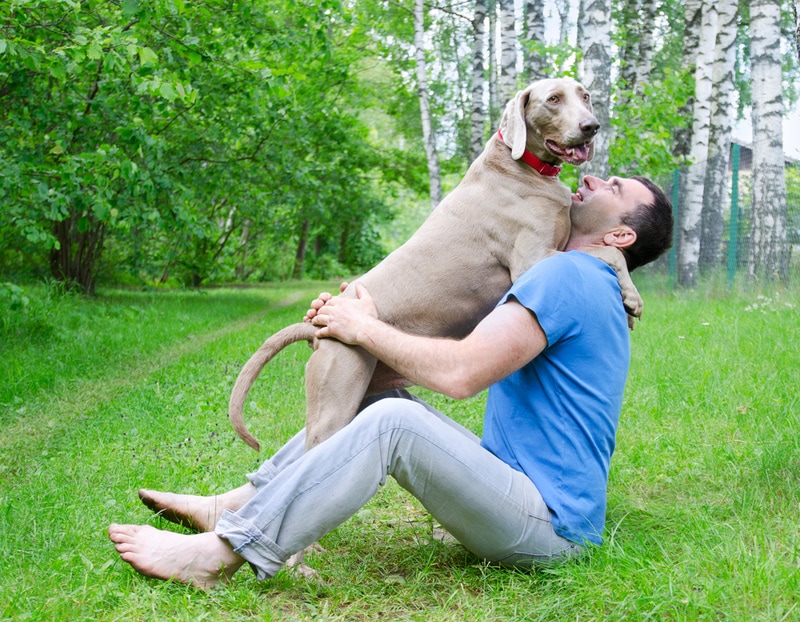
Dogs don’t think the same way people do, and it is important not to prescribe human characteristics to dogs. Just because we think they’re cute doesn’t mean they think we’re cute. For instance, humans’ “cuteness” developed to make us like babies 1. Things that are often considered cute also look like babies, such as small dogs with squished noses. Of course, it makes no sense for this same sense of cuteness to develop in dogs, who have babies that look much different from ours.
We cannot ask dogs if they think humans are cute or not. However, the answer is probably a “no.” We’ll probably never get a definite answer, though, until we learn how to communicate directly with dogs.
Do Dogs Think Their Owners Are Pretty?
Prettiness is completely subjective, though there are some traits that most humans consider pretty. For instance, the vast majority of humans like symmetrical faces, likely because this indicates a low level of inbreeding. Humans with a higher genetic diversity simply make better breeding partners.
Of course, dogs look at completely different things when determining breeding partners. Smell probably plays a larger role than it does for us, for instance. However, they probably do not look for the same things that humans do when judging attractiveness, though there is no way to know for sure.
Despite not having the same views on attractiveness that we do, dogs do bond deeply with their humans and develop a deep attachment to them, and love their owners in many cases 1.

What Do Dogs View Humans As?
The answer to this question is a bit complicated, as it is hard to test, and we have no way to know for sure. You’ll find many articles assuming that dogs are like wolves and view us as a “member of their pack.” However, this probably isn’t true. Dogs have changed a lot from wolves and no longer share many of the same behavioral traits, especially when it comes to humans.
For instance, dogs often make eye contact with humans to communicate with them 2. It’s known to release oxytocin in their brains, which is the bonding hormone (just like it does in people). However, wolves make eye contact to show dominance. It’s the same behavior with a completely different meaning behind it. Therefore, it isn’t that dogs are just domestic versions of wolves and see humans as weird, two-legged pack members.
Instead, it is very likely that dogs see humans as another species. They are not without critical thinking skills, as many dogs have exhibited. They know we aren’t just dogs without fur walking around on two legs. The way they see us is probably similar to how we see them—a different species that is also a part of our family.
While dogs know we aren’t pack members or just another dog, they do still bond closely with us. This relationship developed over thousands of years. Dogs also see us as a source of food and shelter, which explains why many stray dogs approach humans and beg for food. However, dogs also are affectionate beyond our ability to care for them.

Do Dogs Think Humans Are Their Parents?
Not likely. Dogs often treat other dogs differently from people, so it’s pretty clear that they know we aren’t other dogs. Therefore, it also makes sense that they would not believe we are their parents. However, whether or not they remember their real parents is up for debate and probably depends on many factors.
For instance, puppies that were removed from their mothers early may not remember her, while puppies that weren’t removed until closer to 12 weeks likely do. Of course, this is also hard to test, and we can’t just ask them.
If your dog doesn’t remember their mother, we have no way to know if they ever think about this absence. Do dogs who don’t remember think they have a mother? Do they ever question where they came from? Do dogs even have a concept of a mother past puppyhood? No one knows!
What we do know is that dogs see humans as another species, in all likelihood.

Do Dogs Know We Are Human?
Yes, there is a very good chance that the vast majority of dogs know humans are different from other dogs. There are many studies that have found dogs act differently towards other dogs than they do humans.
For instance, one study on play found that dogs play differently when with each other than they do when they are playing with another human. For instance, dogs are much more likely to give up on a competition (like tug-of-war) when their partner is human. They also didn’t hold onto toys for as long and showed more interest in toys when playing with people. When with another dog, dogs were more likely to be possessive of a toy and hold it for longer, as opposed to showing interest in several different toys.
They know we’re different, just like we know that they are different. Of course, their concept of “species” isn’t the same as what we think. Furthermore, because dogs don’t communicate these complex topics, this answer likely varies from dog to dog.
Conclusion
Dogs do not have the same concept of cuteness or beauty that humans have. Human cuteness largely comes from our connection to our babies. Things that look like babies often make us think they are cute. Of course, dogs would be completely different since their puppies look very different from a human baby.
Dogs also know that we are not just weird dogs. They show behavioral differences when with dogs than with humans.
Featured Image Credit: smrm1977, Shutterstock






